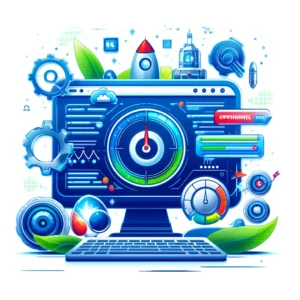In today’s rapidly evolving world, the concept of smart cities has emerged as a beacon of hope for urban development. With the advent of Internet of Things (IoT) technology, cities are becoming more connected, efficient, and environmentally friendly. In this article, we will explore how IoT sensors are revolutionizing urban infrastructure, from traffic management to waste disposal, resulting in improved public safety, reduced environmental impact, and enhanced efficiency.
- Enhancing Public Safety with Intelligent Traffic Management
IoT sensors play a crucial role in transforming urban traffic management systems. By collecting real-time data on traffic flow, these sensors enable intelligent traffic control, optimizing signal timings and reducing congestion. This not only reduces travel times and frustration for commuters but also enhances overall road safety. Additionally, IoT-powered traffic cameras can monitor intersections, detect accidents, and even provide assistance during emergencies, further improving public safety.
- Illuminating the Path to Energy Efficiency with Smart Street Lighting
Traditional street lighting systems are being replaced with smart lighting solutions that leverage IoT sensors. These sensors can adjust lighting levels based on real-time data, such as pedestrian activity and ambient light conditions. By doing so, energy consumption is significantly reduced, resulting in cost savings for cities and a reduced environmental impact. Moreover, smart street lighting enhances public safety by automatically detecting and responding to emergencies, such as fires or accidents, by increasing light levels in the affected area.
- Streamlining Waste Management for a Cleaner, Greener Future
IoT sensors are revolutionizing waste management practices, making them more efficient and sustainable. Smart waste bins equipped with sensors can monitor their fill levels, enabling optimized waste collection routes. This eliminates unnecessary trips and reduces fuel consumption and emissions. Additionally, sensors can detect and report any hazardous leaks or spills, preventing environmental contamination and promoting a healthier urban environment. Smart waste management systems also encourage citizen participation by providing real-time information on recycling centers and promoting waste reduction practices.
- Efficient Resource Allocation through Smart Utilities
IoT sensors enable the efficient management of utilities in smart cities, resulting in improved resource allocation and reduced waste. By monitoring water usage patterns, sensors can detect leaks or abnormal consumption, allowing for timely repairs and conservation measures. Similarly, sensors in energy grids can provide real-time data on consumption patterns, enabling utilities to optimize energy distribution and reduce unnecessary power generation. These measures not only save costs but also contribute to a greener, more sustainable future.
Conclusion
IoT sensors have ushered in a new era of urban development, transforming cities into smart, safe, and sustainable hubs. By leveraging the power of real-time data and connectivity, these sensors enhance public safety, reduce environmental impact, and improve overall efficiency. The integration of IoT technology in infrastructure such as traffic lights, street lamps, and waste management systems paves the way for a more sustainable and livable future. As cities continue to embrace smart city initiatives, the potential for innovation and improvement is boundless, promising a brighter future for urban dwellers worldwide.











